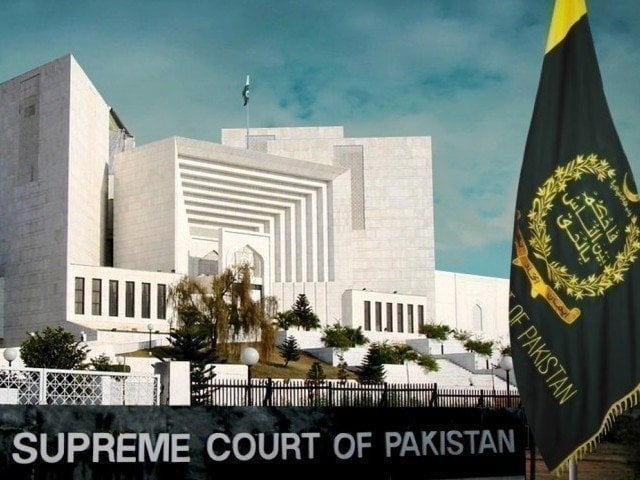
Judicial politics have remained dominant when it comes to fixing and forming benches to hear high-profile cases at the Supreme Court. Ongoing judicial politics among judges is also affecting the reputation of the apex court.
A three-judge committee, created under the Supreme Court Practice and Procedure Act 2023, by a majority 2 to 1 on Thursday, decided to form a five-judge larger bench, led by Justice Jamal Khan Mandokhail, to hear senior journalist Arshed Sharif's murder case after summer vacations.
However, Chief Justice of Pakistan Qazi Faez Isa has dissented with majority opinion by saying that a three-judge bench, led by Justice Syed Mansoor Ali Shah, should hear the matter next week. Lawyers believe that judicial politics cannot be ruled out in the committee's decision.
Since ex-chief justice of Pakistan Mian Saqib Nisar's tenure, there have been serious doubts over the composition of benches in high-profile cases. Usually, chief justices preferred to include 'likeminded judges' in special and larger benches and this was a phenomenon for which former CJP Bandial came under much criticism.
Following serous concerns on the composition of benches, the PDM-led government successfully passed the Supreme Court Practice and Procedure Act 2023 wherein a committee of three senior judges, including the CJP, will form benches and fix cases filed under Article 184 (3) of the Constitution. However, judicial politics were again active and CJP Bandial formed an eight-member larger bench comprising of likeminded judges. The same bench had suspended that law before his enactment.
Later, incumbent CJP Qazi Faez decided not to sit on any bench after the eight-member larger bench's stay order on the SC Practice and Procedure Act 2023. He even refused to sit on a nine-member larger bench hearing petitions challenging trial of civilians in military courts.
When Justice Isa took charge as CJP in September last year, he formed a full court to decide petitions challenging the Supreme Court Practice and Procedure Act 2023. The majority of judges endorsed that law and the three-judge committee started functioning.
However, unlike expectations, judicial politics continued when it came to fixing cases and the composition of benches in high profile cases.
Justice Ijazul Ahsan, being a member of the committee, raised objections over the composition of benches hearing government intra-court appeals against the SC judgement declaring that the trials of civilians in military courts as unconstitutional, as well as the formation of a bench hearing ex-SC judge Mazahar Ali Akbar Naqvi petition against Supreme Judicial Council proceedings of misconduct.
After the resignation of Justice Ahsan, it was expected that the committee would take a decision unanimously. However, that did not happen. The dimension of judicial politics has changed after six Islamabad High Court judges' letter regarding the interference of agencies in judicial functions. Those judges who were in CJP Isa's camp have started to dissent with him.
The situation has further changed after the reserved seats case decision. It has been witnessed that Justice Athar Minallah was neither included in larger benches hearing the military courts case nor the election tribunals matter.
The present committee, by a majority 2 to 1, resolved that the PML-N review petition against the July 12 order in reserved seats case will be fixed after summer vacations. However, CJP Isa strongly dissented with the majority opinion. He was of the view that matter be listed during summer vacations.
Later, it was also seen that a suo motu case regarding Arshed Sharif's murder was fixed before a three-judge bench, led by Justice Syed Mansoor Ali Shah, without the committee's approval. The committee took up the matter on Thursday regarding the composition of the bench in the Arshed Sharif murder case.
Lawyers who are supporting CJP Isa said that there was no court order for constituting larger benches. Several earlier larger benches have been replaced with simple three-member benches by this committee. Senior counsels wonder why Justice Mansoor avoided this case and shifted the burden to Justice Jamal Khan Mandokhail.
On the other hand, a section of lawyers is questioning why CJP Isa did not expedite the journalist's murder case over the last nine months of his tenure. Even during the hearing of journalists' protection case, CJP Isa himself stated that Arshed Sharif murder case was being heard by a larger bench and could not be fixed before the three-judge bench. They also say that when CJP Isa is available, he should propose a bench led by himself.
Observers believe that when a judge is close to becoming CJP, they avoid sitting on benches hearing cases which may annoy powerful circles. It is an open secret that there is mistrust among SC judges after the reserved seats case decision.
Now it will be interesting to see whether the government will issue a notification regarding the appointment of Justice Syed Mansoor Ali Shah as the next CJP or it will work for the judicial package which proposes that the tenure of every judge be extended for three years. CJP Isa will be the main beneficiary in case the government successfully amends the constitution.
In December 2022, ex-CJP Bandial initiated suo motu jurisdiction in the Arshed Sharif case on the recommendation of two SC judges -- Justice Ijazul Ahsan and Justice Muhammad Ali Mazhar.
SC issued a news statement wherein it is was stated that the killing of journalist Arshad had "not only shocked the whole nation, but also caused unrest amongst the journalist community".
"The killing [of Arshad] was publicly decried, and an overwhelming number of requests were sent to the apex court to intervene in the matter and ensure dispensation of justice in accordance with the Constitution and law," it read.
"The prevailing public sentiments were observed by the Hon'ble Chief Justice of Pakistan and accordingly he tasked the Human Rights Cell of the Supreme Court to conduct the necessary inquiry. The report filed by the DG, Human Rights Cell was sent by the Hon'ble Chief Justice to Hon'ble Justice Ijazul Ahsan and Hon'ble Justice Muhammad Ali Mazhar for their opinion[s]. Both the learned Judges recommended the invocation of the original jurisdiction under Article 184(3) of the Constitution in the matter," it added.

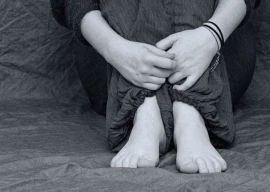
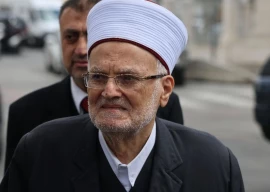
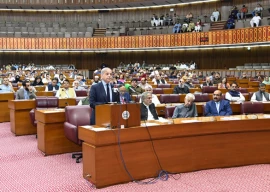



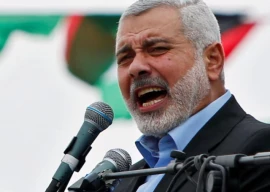
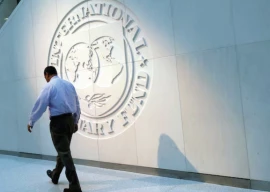
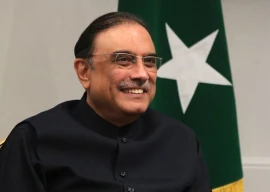
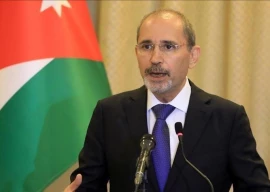


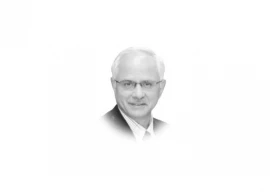





COMMENTS
Comments are moderated and generally will be posted if they are on-topic and not abusive.
For more information, please see our Comments FAQ